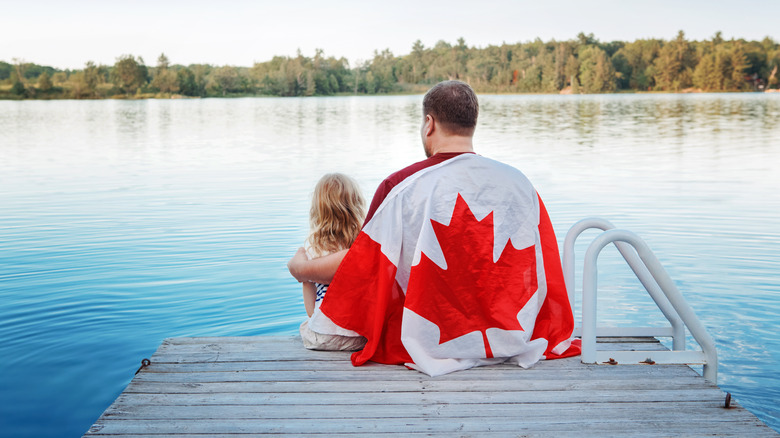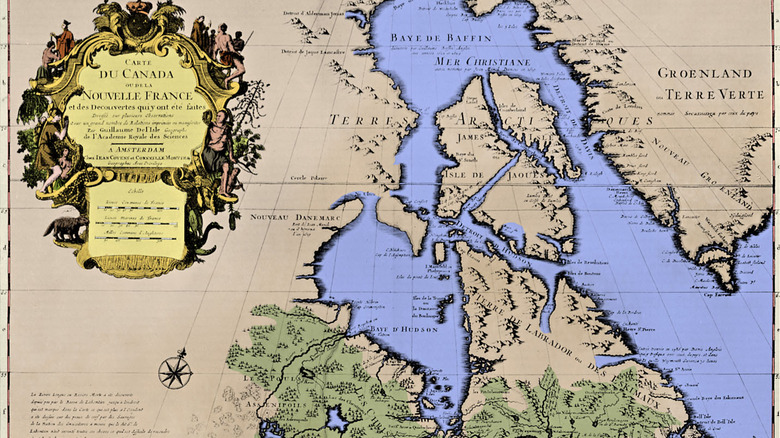This Is How Canada Got Its Name
Even though the U.S.-Canada border is within a couple hours' drive of tens of millions of Americans, our neighbor to the north remains a mystery to a lot of U.S. citizens. There isn't much of a mystery, however, according to The Travel: By and large, the two countries are so culturally indistinguishable as to effectively be the same place. What differences there are (the Canadian preference for hockey over football, for example, or the way milk is packaged in Canadian grocery stores vs. American ones) are borderline trivial.
Canadian place names, however, are a mixed bag. Considering that the British played a large role in the settlement of the country, in much the same way that they did with the U.S., many Canadian place names are distinctly British: London, St. John, Brampton. Further, French and First Nations names play a role in the country's geography. In fact, the entire country of Canada has a name that probably comes from a First Nations name, albeit it's likely rooted in a misunderstanding.
A French misunderstanding or Spanish failure
As is often the case with word origins, where the name "Canada" came from is lost to history, although the Canadian government, via its website, says that it "likely" came from a misunderstanding between French explorer Jacques Cartier and some local children. Specifically, the youths told Cartier about a nearby place called "kanata" — a Huron-Iroquois word that means "village" or "settlement," and which referred to an outpost then known as Stadacona (now called Québec). Cartier used the word "kanata" to describe not just the village, but all of the territory controlled by the chief, Donnacona. Soon the word "Canada" was appearing on maps, and that eventually led to the entire country taking on the name.
There are other theories as well, according to The Canadian Encyclopedia. Decades before the French came sniffing around, there were British, Spanish, and Portuguese sailors and explorers in the region. One possibility is that after some Spaniards explored Baie des Chaleurs (Charleur Bay), they found nothing worthwhile, wrote back to their superiors "aca nada" (nothing here), and named the place "Capa da Nada" (Cape Nothing).

